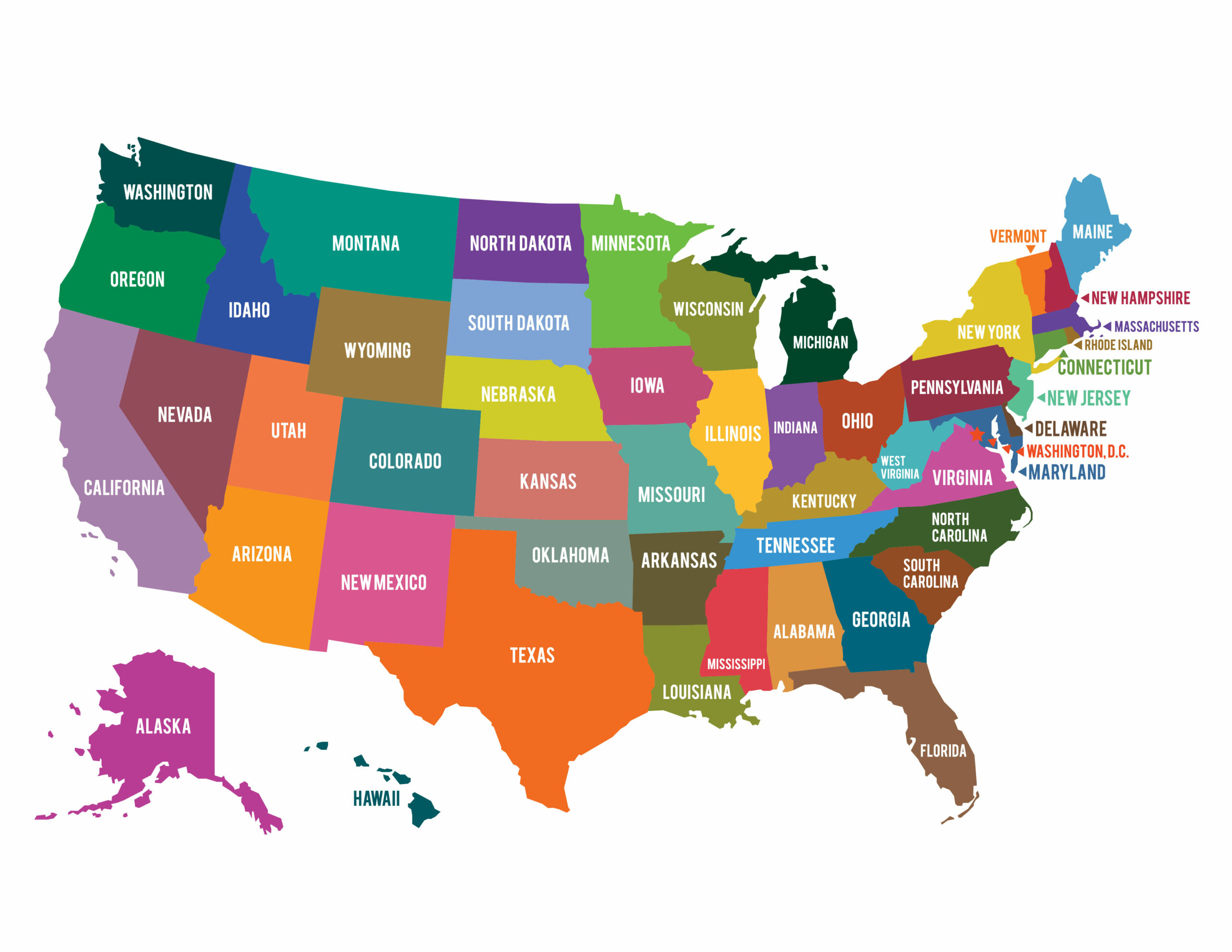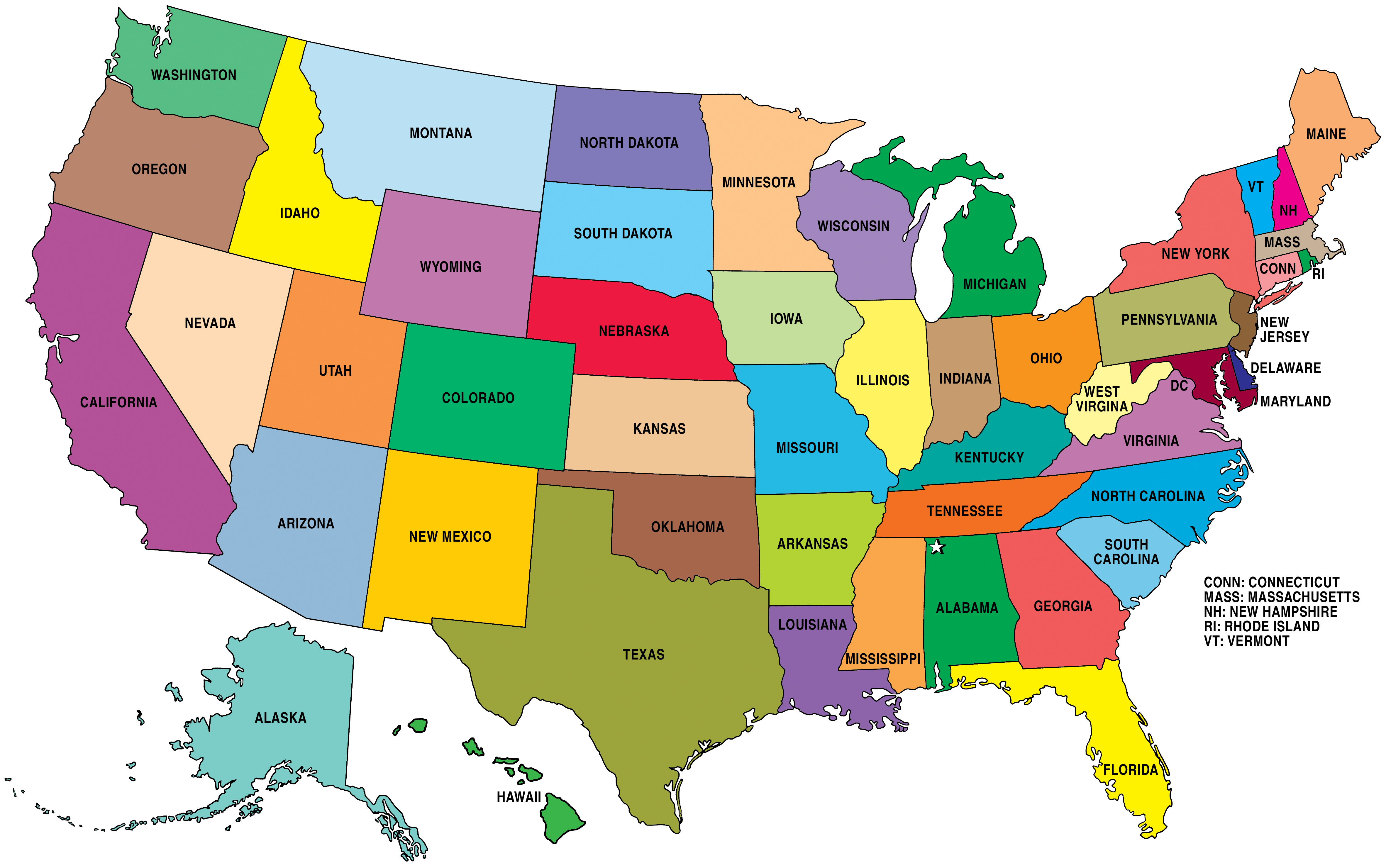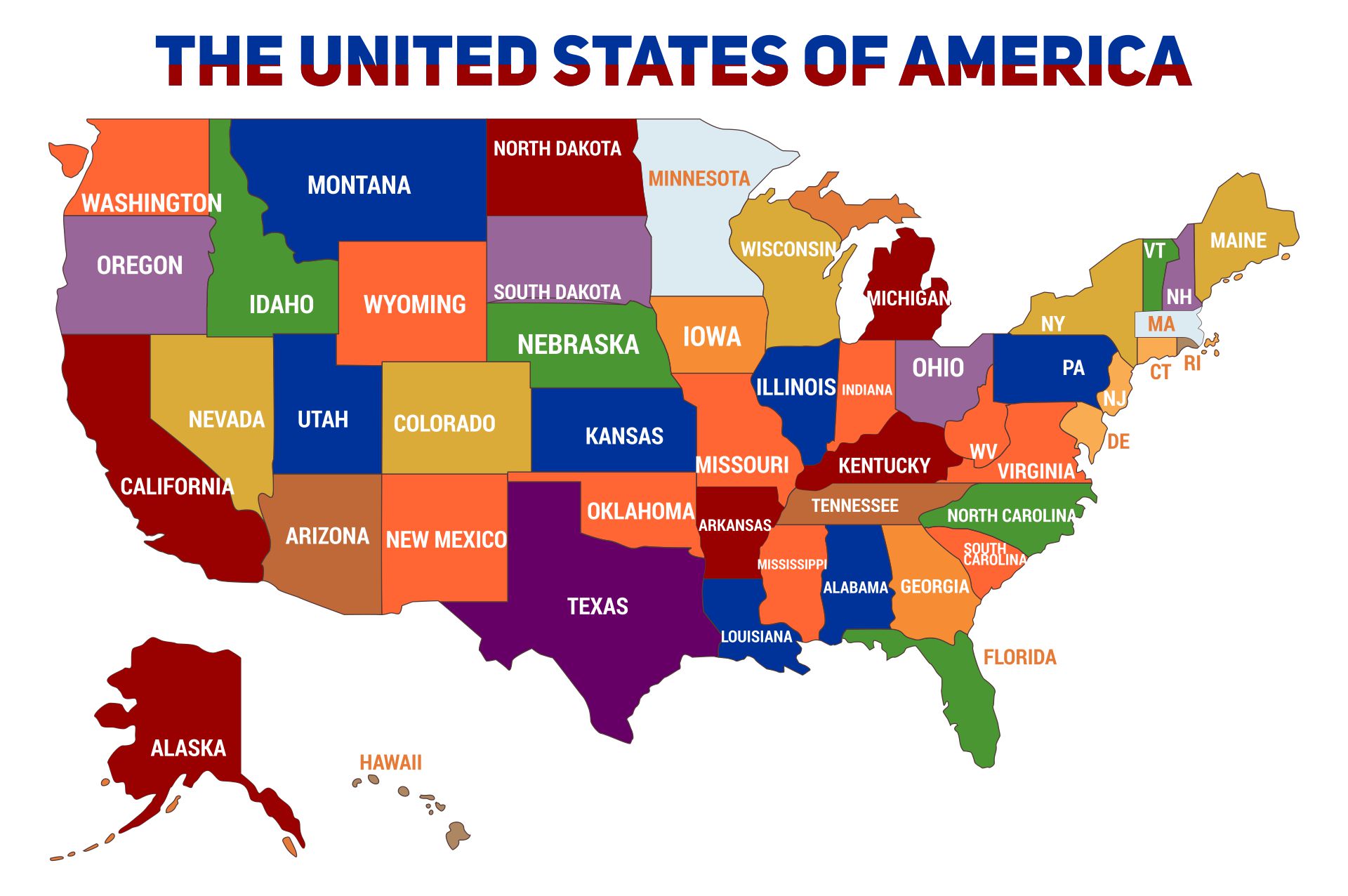Have you ever wondered about the legal standing of plural marriages in the United States? It's a topic that, you know, sometimes pops up in conversation, and it's surrounded by quite a bit of misunderstanding. Many people often ask, "Are there really states that allow polygamy?" The simple answer might surprise some, but the reality is actually a bit more layered than a simple yes or no. This discussion isn't just about what's legal on paper; it also touches on historical practices, religious freedom, and the practical challenges faced by families living in these arrangements. We're going to look into the ins and outs of this very interesting subject, giving you a clearer picture of the situation across the nation.
The concept of polygamy, which generally means having more than one spouse, carries a lot of different meanings for different people. For some, it's a historical or religious practice, while for others, it raises questions about modern family structures and legal frameworks. It's really important, you see, to approach this topic with an open mind and a desire to understand the legal and social nuances involved. We'll explore how federal and state laws interact, and why, in a way, the perception of polygamy often differs from its legal reality.
This article aims to clear up some of the confusion surrounding states that allow polygamy, providing factual information and context. We'll explore the distinctions between different forms of plural unions, discuss the historical background, and explain the current legal situation in the United States. You'll also find out about the practical implications for individuals and families who choose to live in these arrangements, even if they aren't officially recognized by the government. So, let's get into it, shall we?
- Liza Rowe
- Alina Li
- Tango If%C5%9Fa
- Hisashi Ouchi Fotos
- Securely Connect Remoteiot P2p Ssh Download Android
Table of Contents
- Understanding Polygamy: What It Really Means
- The Legal Landscape: Are There States That Allow Polygamy?
- Consequences and Challenges of Unrecognized Plural Unions
- What Does "My Text" Tell Us About State Information?
- Frequently Asked Questions About Polygamy in the US
- Conclusion
Understanding Polygamy: What It Really Means
When we talk about polygamy, it's actually a broad term that covers several types of marriage where someone has multiple spouses. The most common form people think of is polygyny, which is when a man has more than one wife. Polyandry, on the other hand, is when a woman has more than one husband. These practices, you know, have existed in various cultures around the world for a very long time, often tied to religious beliefs, social structures, or economic reasons. Understanding these basic definitions is quite important before we look at the legal side of things.
It's interesting to note that the way society views polygamy can differ greatly depending on cultural and historical contexts. In some parts of the world, it's a completely accepted and even traditional form of family life. However, in many Western countries, including the United States, the concept of marriage is, more or less, legally defined as a union between two people. This legal definition, as a matter of fact, shapes how plural marriages are treated under the law, which is what we'll be exploring further.
Polygamy vs. Bigamy: A Key Distinction
One of the most common confusions arises between the terms "polygamy" and "bigamy." While both involve multiple marriages, their legal implications are quite different. Bigamy refers to the act of entering into a marriage with one person while still legally married to another. This is, you know, a criminal offense in all 50 states. It means that if you are legally married to someone, you cannot legally marry someone else without first getting a divorce. That's a pretty clear legal line.
- Is Wendy Williams Alive
- Who Is Mark Levins Ex Wife
- Eduardo Saverin
- Sophie Rain Twerking
- Hwang Dong Hyuk Net Worth 2025
Polygamy, by contrast, is the general practice of having multiple spouses, regardless of legal recognition. While the *practice* of living in a plural family might exist, the *legal act* of marrying more than one person at a time is what constitutes bigamy and is outlawed across the board. So, while no states that allow polygamy in the sense of legally recognizing multiple concurrent marriages, communities might exist where people live in polygamous relationships without official legal recognition. It's a subtle but very important difference, actually.
Historical Context of Plural Marriage in the US
The history of plural marriage in the United States is, in fact, closely linked to the early days of the Church of Jesus Christ of Latter-day Saints, often called the Mormon Church. For a period in the 19th century, members of this faith practiced polygamy as a religious tenet. This practice, however, led to significant conflict with the federal government, which viewed it as morally wrong and a threat to societal norms. The government passed laws specifically targeting polygamy, leading to legal battles and, you know, a lot of social tension.
Ultimately, the Church of Jesus Christ of Latter-day Saints officially renounced the practice of plural marriage in 1890, a decision that was pretty much necessary for Utah to gain statehood. Despite this, some splinter groups, or fundamentalist factions, continued to practice polygamy, often in isolated communities. These groups, even today, face legal challenges and social scrutiny. So, the historical context, you know, really sets the stage for the current legal landscape surrounding states that allow polygamy, or rather, states that outlaw it.
The Legal Landscape: Are There States That Allow Polygamy?
Let's get straight to the point: there are no states that allow polygamy in the sense of legally recognizing a marriage between more than two people. Every single state in the United States, along with the federal government, defines marriage as a union between two individuals. This means that if you are legally married to one person, you cannot legally marry another. Attempting to do so, as we discussed, constitutes bigamy, which carries criminal penalties.
However, the absence of legal recognition doesn't mean that plural relationships don't exist. People certainly live in polygamous arrangements, often driven by religious or cultural beliefs. These relationships, however, lack any legal standing as marriages. This distinction is really important, you know, because it impacts everything from property rights to inheritance to healthcare decisions. So, while the *practice* might occur, the *legal framework* simply doesn't support it anywhere in the US, not even slightly.
Federal Law and State Statutes
Federal law, specifically the Edmunds-Tucker Act of 1887, played a very significant role in criminalizing polygamy across US territories. While this act primarily targeted the Mormon Church's practice, its principles have, more or less, shaped the federal stance on marriage. Today, federal benefits, like Social Security spousal benefits or joint tax filings, are only available to legally recognized spouses in a monogamous union. This is a pretty big deal, you know, for families living in plural arrangements.
At the state level, every state has laws against bigamy. These laws typically define marriage as a union between two people and impose penalties, which can include fines and imprisonment, for anyone who tries to enter into a second marriage while still legally married to another. So, while the term "states that allow polygamy" might come up in conversation, the legal reality is that all states actively prohibit it. This uniform legal stance across the country is, frankly, quite clear.
The Role of Religious Freedom
The First Amendment to the US Constitution protects freedom of religion, allowing people to believe what they choose. However, this protection, you know, does not extend to practices that are deemed illegal or harmful to society. The Supreme Court has consistently ruled that while individuals are free to believe in polygamy as part of their religion, they are not free to *practice* it if it violates the law. This was established in cases like *Reynolds v. United States* back in 1878, which upheld the federal government's right to outlaw polygamy.
This means that religious freedom, while a cornerstone of American liberty, has its limits when it comes to actions that are against established laws, especially those concerning public order and morality. So, while a religious group might hold beliefs that include plural marriage, the legal system, in a way, draws a line at the actual act of marrying multiple people. It's a rather delicate balance between individual rights and societal laws, as you can probably imagine.
De Facto vs. De Jure Recognition
When discussing states that allow polygamy, it's helpful to understand the difference between "de facto" and "de jure." "De jure" means "by law," and as we've established, no state legally recognizes polygamous marriages. They are not allowed by law, plain and simple. "De facto," however, means "in fact" or "in practice." This refers to the reality that, in some communities, people do live in plural relationships, even if those relationships have no legal standing.
These de facto polygamous families operate outside the legal recognition of marriage. This can create, you know, a whole host of legal and social challenges. For example, the "second" or "third" spouse in a de facto polygamous union has no legal rights as a spouse, nor do any children born into such a union automatically have the same legal protections as children from a legally recognized marriage. It's a very important distinction to grasp when talking about the actual situation on the ground.
Consequences and Challenges of Unrecognized Plural Unions
Living in a de facto polygamous union in the United States, where there are no states that allow polygamy legally, comes with a lot of practical difficulties. Since these relationships aren't recognized by the law, individuals in them often face significant hurdles in areas that monogamous couples take for granted. This includes, you know, things like property ownership, healthcare, and parental rights. It's not just a minor inconvenience; it can be quite serious, actually.
The lack of legal standing means that the "secondary" spouses have no claim to shared assets, no right to make medical decisions for their partner, and no automatic inheritance rights. Children born into these unions might also face issues with legal parentage or access to benefits. These are, you know, very real challenges that can impact families in profound ways, highlighting the importance of legal recognition for any family structure.
Legal Ramifications for Individuals
For individuals involved in de facto polygamous relationships, the legal ramifications can be pretty extensive. The person who is legally married to one spouse and then enters into a de facto marriage with another could face bigamy charges. While prosecutions for bigamy might not be extremely common, they do happen, especially in cases where there are other alleged crimes involved, like child abuse or fraud. This is a very real risk, you know.
Beyond criminal charges, there are civil issues too. Without legal marriage, partners in a plural union have no legal standing for divorce proceedings, spousal support, or division of assets upon separation. This can leave individuals, particularly women and children, very vulnerable. It's a situation where, frankly, the law offers little to no protection for those in unrecognized unions, which is a rather significant point to consider.
Social and Community Aspects
Beyond the legal challenges, de facto polygamous communities sometimes face social isolation and scrutiny. While some communities are very insular and supportive internally, they can be misunderstood or viewed with suspicion by the broader society. This can affect things like access to public services, educational opportunities for children, and general social integration. It's a bit of a tricky situation, you know, when a community's practices clash with mainstream norms.
There are also concerns about potential abuses within these communities, particularly regarding the rights and welfare of women and children. Because these relationships operate outside the typical legal framework, it can be harder for authorities to intervene in cases of exploitation or forced marriage. This is, you know, a serious aspect that often draws public and legal attention to these otherwise private family arrangements.
What Does "My Text" Tell Us About State Information?
When you're looking into something as specific as marriage laws, especially something as nuanced as polygamy, it's really helpful to have solid, factual state information at your fingertips. Our resource, for example, offers links to state homepages, details about state constitutions, and even lists of state representatives. This kind of detailed state-by-state data is quite important for understanding the legal landscape of any issue, including marriage. For instance, you can learn more about individual state laws and regulations on our site, which provides direct links to each state's official resources.
Our collection also includes information like state flags, maps, and even zip codes for all 50 states. This comprehensive data, you know, helps paint a full picture of each state's unique characteristics. If you're curious about how a state's legal framework for marriage developed, understanding its history of admission to statehood or even its constitution, which we also provide links to, can be very insightful. So, if you ever need to quickly look up state capitals or explore US states and capitals map, our site is designed to help you find that information fast. You can also explore more about state symbols and trivia here, which adds a bit of fun context to your research.
Basically, having a reliable source for state-specific information is key to grasping the full scope of laws and practices across the United States. Whether it's finding out which capital belongs to which state, or understanding the population by state, our resource aims to be the best source of free maps for the United States of America and a general hub for state data. This kind of background information, as a matter of fact, really helps when you're trying to understand complex legal topics like the legality of plural marriage.
Frequently Asked Questions About Polygamy in the US
People often have a lot of questions about polygamy and its legal status in the US. Here are a few common ones, answered simply.
Is polygamy legal anywhere in the US?
No, polygamy is not legally recognized as a form of marriage in any of the 50 states or by the federal government. Every state considers marriage to be a union between two people. Entering into multiple legal marriages is considered bigamy, which is a criminal offense, so it's a pretty clear legal situation.
What is the difference between polygamy and bigamy?
Polygamy is a general term for the practice of having multiple spouses, regardless of legal status. Bigamy, however, is a specific criminal offense where someone enters into a marriage with one person while still legally married to another. So, while people might live in de facto polygamous relationships, they can only be legally married to one person at a time, or else they are committing bigamy, which is a rather important distinction.
Can people be prosecuted for living in polygamous relationships?
While simply living together in a plural relationship is generally not prosecuted, the act of legally marrying more than one person is bigamy, which can lead to criminal charges. Prosecutions often occur when other issues are involved, like fraud, child abuse, or exploitation. So, it's the legal act of marriage, you know, that crosses the line, not just the cohabitation.
Conclusion
So, to be quite clear, when we talk about states that allow polygamy, the answer is that no state in the US legally recognizes or permits polygamous marriages. The legal framework across the entire country defines marriage as a union between two individuals, and any attempt to enter into more than one legal marriage at a time is considered bigamy, a criminal offense. This uniform legal stance is, you know, a very important point to remember.
While de facto polygamous relationships do exist in some communities, they operate outside the bounds of legal recognition, leading to significant challenges for individuals and families involved. These challenges can impact everything from property rights to social integration, highlighting the practical consequences of a lack of legal standing. Understanding these distinctions between legal recognition and actual practice is, you know, key to grasping the full picture of plural marriage in the United States. It's a complex topic with historical roots and ongoing social considerations, and it certainly invites further thought and discussion. For more information on legal definitions and family law, you might find resources from the American Bar Association helpful.
Related Resources:



Detail Author:
- Name : Amanda Oberbrunner V
- Username : eladio36
- Email : ena.roob@yahoo.com
- Birthdate : 2003-10-02
- Address : 85728 Durgan Lake West Darronside, AR 09833-8391
- Phone : 1-251-654-8986
- Company : Hettinger LLC
- Job : Engineer
- Bio : Maxime ut hic quam dolorem ut deleniti. Voluptas temporibus inventore ut incidunt qui dicta. Sunt aut quidem aut ut dolores saepe necessitatibus.
Socials
instagram:
- url : https://instagram.com/vincenza3547
- username : vincenza3547
- bio : Consequatur aspernatur aut suscipit ea odit est. Praesentium et labore debitis nihil ut quos.
- followers : 1192
- following : 2956
tiktok:
- url : https://tiktok.com/@vrobel
- username : vrobel
- bio : Voluptatem quasi voluptatem quos optio quod. Eius aliquam rerum molestiae est.
- followers : 2066
- following : 2146
twitter:
- url : https://twitter.com/robelv
- username : robelv
- bio : Velit quasi magni atque omnis voluptas. Sunt recusandae rem cumque aliquid quas asperiores. Aut nam quia libero et porro consequatur asperiores deserunt.
- followers : 6933
- following : 2787
linkedin:
- url : https://linkedin.com/in/robelv
- username : robelv
- bio : Et ipsa eos dolorem quis facilis.
- followers : 1429
- following : 2577
facebook:
- url : https://facebook.com/vincenza.robel
- username : vincenza.robel
- bio : Pariatur dolores molestiae qui quibusdam optio iste in.
- followers : 421
- following : 438